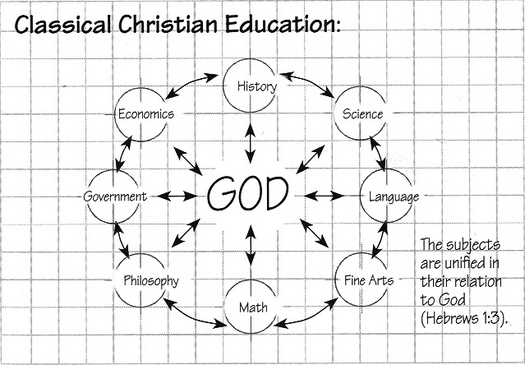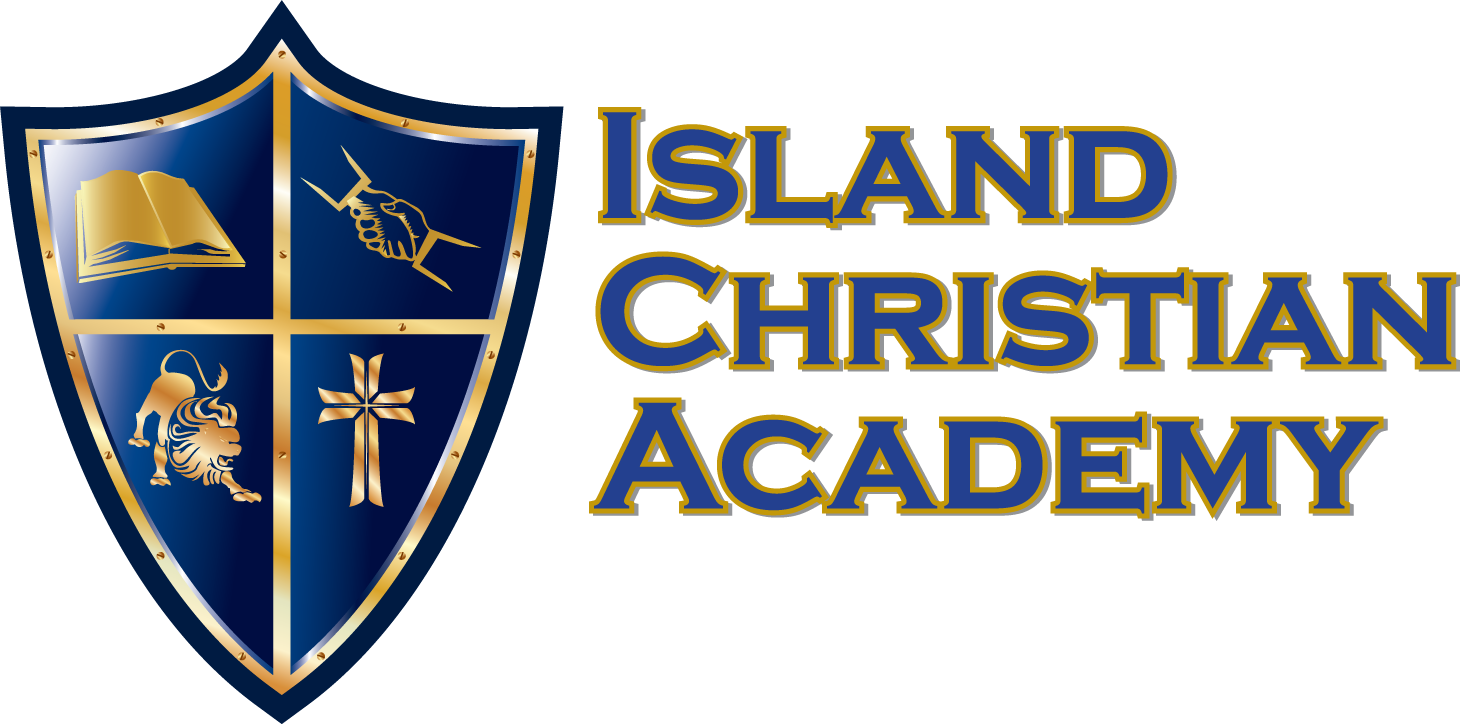
Classical education is a three part process of training the mind. The early years of school are spent learning facts, systematically laying the foundations for advanced study. During the middle grades students learn to think through logical argument. In the high school years, they learn to express themselves orally. This classical approach is called the trivium.
Kindergarten – Fourth Grade
In the first years of schooling, Kindergarten through fourth grade, students are gaining skills for the foundation of learning. The mind is ready to absorb information and they find memorizing fun at this age. Students in these grades are learning facts, rules of phonics and spelling, rules of grammar, poems, the vocabulary of foreign languages, the stories of history and literature, facts of math and much more. This is called the “Grammar Stage” because these are the years in which the building blocks for all other learning are laid, just as grammar is the foundation for language.
Fifth Grade – Eighth Grade
The second phase is the “Logic Stage”. At this stage students are thinking more analytically and are less interested in facts and more interested in the “Why”. In this stage the child begins to pay attention to cause and effect, to the relationships of how facts go together logically. Students start thinking abstractly.
During these years the students are learning logic and algebra. Logic will be applied to all academic subjects. The logic in writing includes paragraph development and learning to support a thesis. The logic of reading consists of criticism and analysis of texts, not just absorbing the information. The logic of history is to find out the why, for example why were wars fought, rather than just reading the stories about wars. The logic of science requires that the student learn the scientific method.
Ninth Grade – Twelfth Grade (High School)
The final phase of classical education is the “Rhetoric Stage”. This is where the high school students put their knowledge base and logical reasoning together and begin to write and speak with strong convictions and originality. The rhetoric student applies the rules of logic learned in middle school to the foundational information learned in the earlier years and expresses their conclusions in a clear and elegant language. Students also begin to explore careers. College courses, mission trips, apprenticeships, and other forms of training are encouraged.
Classical education is language focused. Learning is accomplished through words, written and spoken, rather than through images. This requires a high level of thinking. The mind is supplied with facts, then given the logical tools for organization, and finally equipped to express conclusions.
For more information about classical education read Dorothy Sayers’ essay on classical education “The Lost Tools of Learning”
Kindergarten – Fourth Grade
In the first years of schooling, Kindergarten through fourth grade, students are gaining skills for the foundation of learning. The mind is ready to absorb information and they find memorizing fun at this age. Students in these grades are learning facts, rules of phonics and spelling, rules of grammar, poems, the vocabulary of foreign languages, the stories of history and literature, facts of math and much more. This is called the “Grammar Stage” because these are the years in which the building blocks for all other learning are laid, just as grammar is the foundation for language.
Fifth Grade – Eighth Grade
The second phase is the “Logic Stage”. At this stage students are thinking more analytically and are less interested in facts and more interested in the “Why”. In this stage the child begins to pay attention to cause and effect, to the relationships of how facts go together logically. Students start thinking abstractly.
During these years the students are learning logic and algebra. Logic will be applied to all academic subjects. The logic in writing includes paragraph development and learning to support a thesis. The logic of reading consists of criticism and analysis of texts, not just absorbing the information. The logic of history is to find out the why, for example why were wars fought, rather than just reading the stories about wars. The logic of science requires that the student learn the scientific method.
Ninth Grade – Twelfth Grade (High School)
The final phase of classical education is the “Rhetoric Stage”. This is where the high school students put their knowledge base and logical reasoning together and begin to write and speak with strong convictions and originality. The rhetoric student applies the rules of logic learned in middle school to the foundational information learned in the earlier years and expresses their conclusions in a clear and elegant language. Students also begin to explore careers. College courses, mission trips, apprenticeships, and other forms of training are encouraged.
Classical education is language focused. Learning is accomplished through words, written and spoken, rather than through images. This requires a high level of thinking. The mind is supplied with facts, then given the logical tools for organization, and finally equipped to express conclusions.
For more information about classical education read Dorothy Sayers’ essay on classical education “The Lost Tools of Learning”
| the_lost_tools_of_learning.pdf | |
| File Size: | 116 kb |
| File Type: | |


